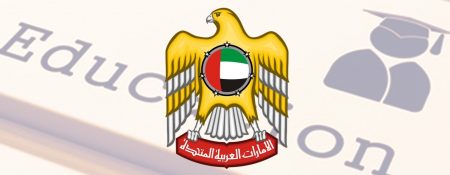Did you know that over half the world’s population is fluent in two languages or more? All these people are experiencing an array of cognitive, emotional, health and career benefits that come with bilingualism or multilingualism.
It is never too soon to learn a second language. In Dubai, dual-language nurseries and kindergartens teach children who are already being raised bilingual, along with those whose parents wish them to become fluent in a second language. Various combinations of languages are taught. For example, Arabic and English are taught together in the early years at GEMS Al Barsha National School, a school in Al Barsha, Dubai.
Here, we describe what to expect from a dual-language nursery or kindergarten classroom in Dubai. Plus, we explore the wide-ranging and lifelong benefits of bilingualism and dual-language education from an early age.
The goal of dual-language early years classes is to fully immerse children in two languages. Therefore, the main difference between dual-language and single-language schools is how teachers use language in the classroom.
Here is how dual-language classrooms work in practice:
Whether your child is currently monolingual or already speaks both languages, their needs will be catered for. Through immersion, their skills in both languages will develop naturally over time.
The curriculum choice will determine what subjects are taught and the approach to teaching them. Dual language nurseries or kindergartens choose one curriculum to follow, just like their monolingual equivalents, but will place more emphasis on language learning. In international schools in Dubai, the choice could be:
In most school systems, the preschool curriculum includes lots of play plus organised group activities. The preschool classroom environment is carefully organised so that children have high-quality opportunities to learn through informal, hands-on play.
All good schools recognise that the early years are a crucial time for language and early literacy development. In nursery or kindergarten, your child will have their first experience of reading and writing teaching through stories, activities and play.
In dual-language classrooms, your child will receive early literacy instruction in both languages. Dual-language literacy instruction includes:
Your child can begin benefitting immediately from learning a second language. There are three key benefits that will contribute to a fulfilling school life and beyond.
In a diverse community like Dubai, bilingualism means people can communicate better. This helps create stronger relationships between individuals, families and groups. Your child can benefit from a young age by being able to make more friends and enjoy a wider range of activities in their second language. Speaking a second language benefits confidence too.
Access to more than one language will allow your child to communicate with more people around the world too. A second language can help broaden horizons. In the future, bilingualism will open up more exciting opportunities for your child to travel and better choices for higher education and careers.
Many psychologists and doctors have studied how bilingualism benefits the brain. Research shows that bilingual children can develop more flexible, active brains thanks to the workout that switching between languages provides.
Thanks to scientific studies, we now know that bilingualism promotes better:
Speaking more than one language appears to keep cognitive skills sharp in adulthood too. In later life, bilingualism has even been shown to help delay the onset of Alzheimer’s Disease.
Studies have shown that dual-language immersion students frequently outperform their monolingual peers in core school subjects.
One study by RAND that measured the effects of dual-language immersion in US schools combining English and a variety of other languages found children made very positive progress. Compared to students receiving monolingual instruction, dual-language learners were:
It is not just language skills that benefit from language immersion programmes. Other studies have shown that young children in bilingual programmes can make faster progress in other subjects, including maths, due to the cognitive benefits associated with language learning.
Apart from the social, cognitive and academic benefits discussed above, opting for a dual-language early years programme can provide some practical benefits for you and your child.
For instance, immersing your child in a language now may help them learn the language they need to attend the school of your choice later on. It may open up the opportunity to study an internationally recognised curriculum. Learning in English alongside Arabic, for example, can enable your child to study for highly respected qualifications like the IB Diploma, American High School Diploma or British GCSEs and A-levels in the future. One of these pathways is likely to benefit university opportunities and applications, too.
Why not consider a dual-language school, nursery or kindergarten in Dubai? You can start your child’s bilingual education by taking a look at schools online, visiting preschool classrooms, or with easy online enrolment at GEMS schools.


